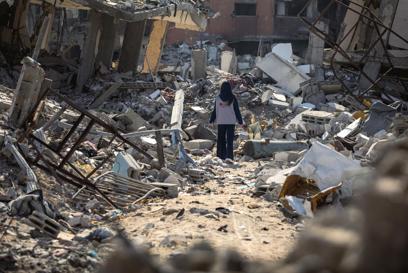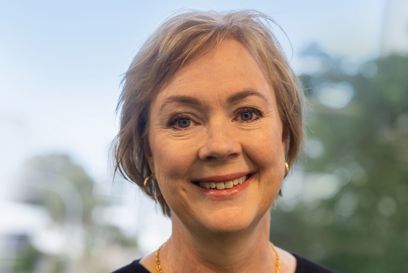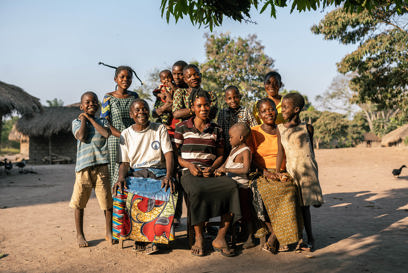The United Nations climate summit recently came to a close in Sharm El-Sheikh in Egypt, with Catholic delegates from around the world, including Caritas Australia, welcoming the historic deal on Loss and Damage for developing nations in the final decisions of COP27.
Governments have agreed to set up a Loss and Damage fund to support countries that have contributed least to the climate crisis but are already seeing devastating impacts – including drought and rising sea levels.
Catholic agencies including the Caritas Internationalis network, advocated strongly for the inclusion of Loss and Damage in the discussions, based on the moral obligation to support the most vulnerable with climate adaptation. This year’s COP summit also saw the Holy See send an official delegation for the first time.
“It has been inspiring to see the international Catholic community advocate for the most vulnerable. The establishment of a Loss and Damage fund is an important step towards supporting communities whose lives, livelihoods and cultures have been impacted or even destroyed by the climate crisis. It is now vital to ensure that the fund addresses climate injustice, and does not just become empty words,” said Dr Damian Spruce, Caritas Australia’s Advocacy Associate Director and Caritas Oceania's COP27 delegate.
Dr Spruce worked with the Holy See delegation to help protect Pacific people and their islands from the impacts of climate change, advocating for local access to climate adaptation funds, and loss and damage finance to the global community. At the side event ‘Catholic Perspectives at COP27: Climate and Biodiversity Justice from Faith perspective: what’s next?’ he joined Catholic delegates from across the world in addressing the COP27 guests on how Catholic Social Teachings and Pope Francis' call for climate justice in his papal encyclical Laudato Si' aligned with the broader goals of COP27.
At this event he presented ‘Twin clouds on the horizon: averting a combined climate and debt crisis in the Pacific through locally-delivered climate finance’, which calls for international governments, including the Australian Government, to take the lead on climate debt in the Pacific.
“Those who are most vulnerable to climate change are urgently calling for support in this moment of crisis," said Dr Spruce. “It is our moral imperative to ensure that those most impacted by climate change are supported to adapt to climate disasters and slow-acting effects like rising sea levels. This reform has been important for the Pacific where we have seen climate disasters wipe out large portions of their economy, leaving many in need of financial support to avert economic crisis.”
Contact: Jessica Stone jessica.stone@caritas.org.au

















